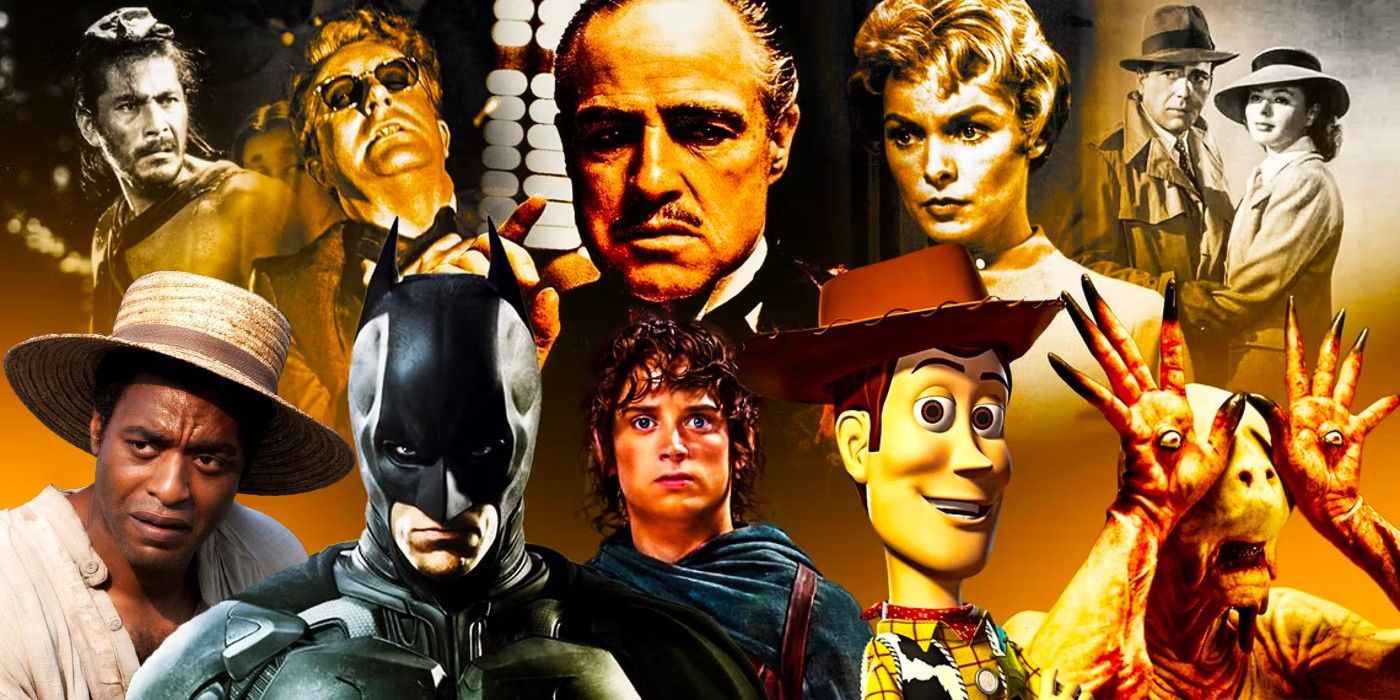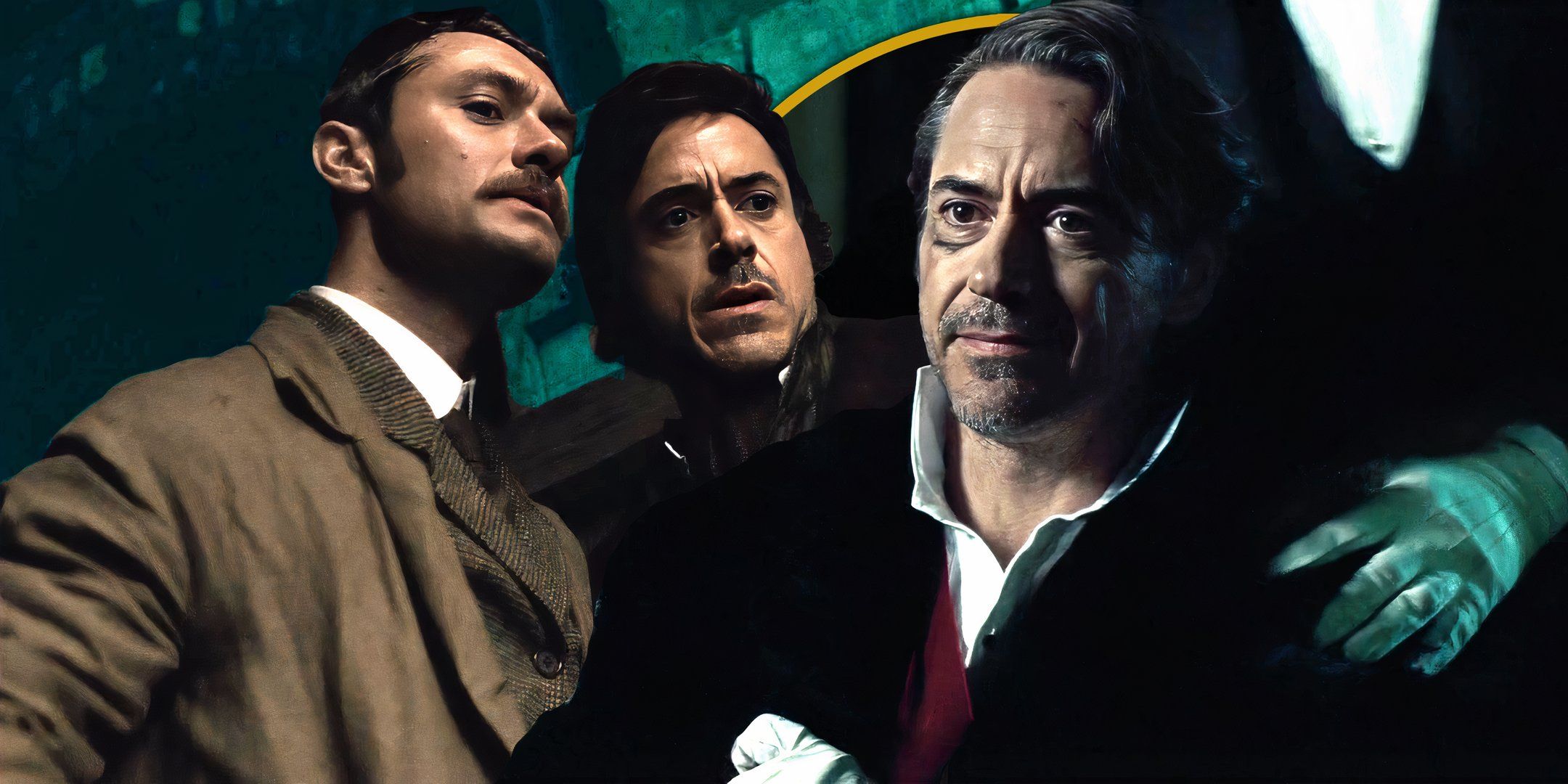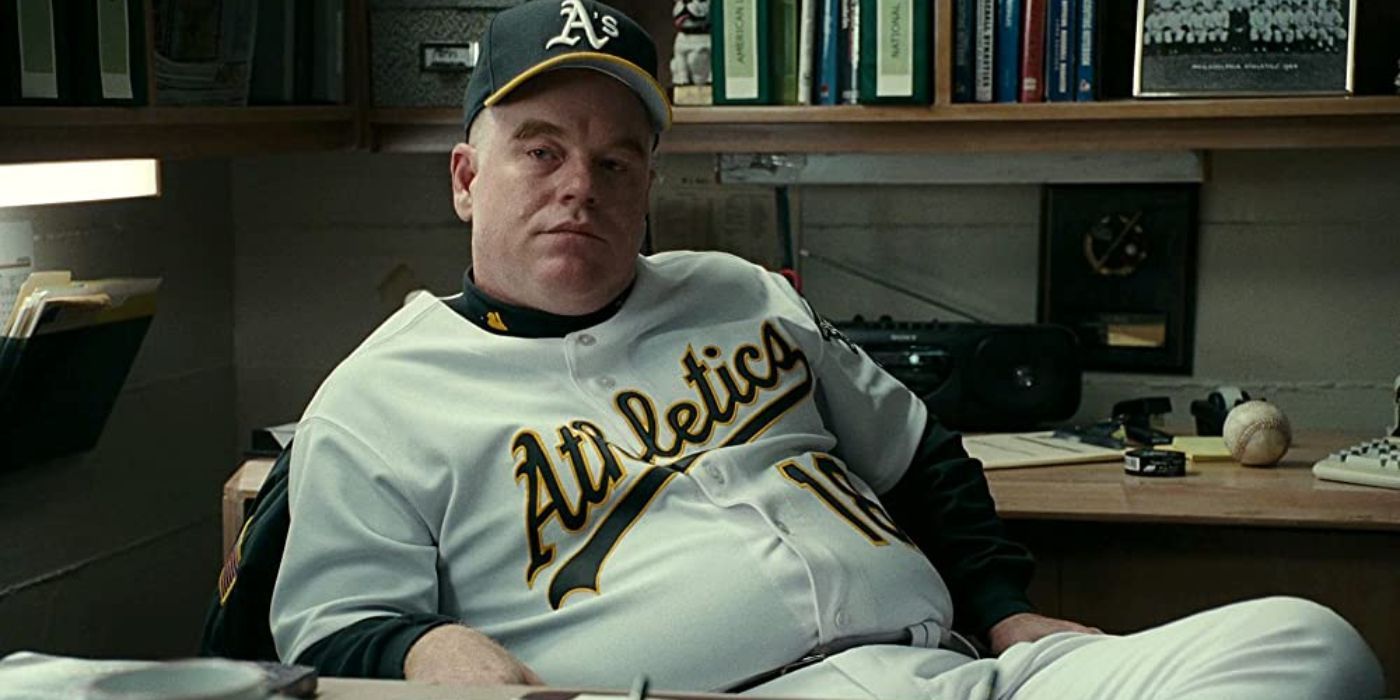Summary
- Moneyball's portrayal of the conflict caused by Billy Beane's new approach to team management is exaggerated. In reality, most of the A's staff supported Beane's new approach.
- The character of Peter Brand in Moneyball is fictionalized and based on Paul DePodesta. Despite the inaccuracies, Beane and DePodesta maintain a close friendship.
- The relationship between Beane and Grady Fuson was not as antagonistic as portrayed in the film. They had a professional working relationship and have worked together again since.
The Moneyball true story compares well in many ways to the movie but also has some glaring inconsistencies. It portrays many of the challenges the 2002 Oakland Athletics faced as they sought to compete with larger market teams with much higher budgets. One of the most significant difficulties that the A's face is retaining talented players, who are often lured away by teams like the New York Yankees, who had a budget of $115 million, almost triple that of the A's $40 million. This disparity in resources is frustrating for the A's leadership, and it prompts General Manager (GM) Billy Beane to take a new approach to team management.
Billy Beane's approach was based on sabermetrics, an analytical approach to baseball first championed by Bill James in the 1980s. Beane's decision to embrace sabermetrics caused some tension within the A's organization, but it ultimately proved successful. However, the movie Moneyball also took some significant liberties with the true story of the 2002 Oakland Athletics. For example, the film exaggerates the conflict caused by Beane's new approach to team management, making it seem like he is constantly battling against his own coaches and scouts. In reality, most of the A's staff supported Beane's new approach.

The 55 Best Movies Of All Time
Screen Rant breaks down the best movies of all time, from old classics to modern masterpieces across multiple genres of cinema.
Art Howe & Billy Beane's Disagreements Were More Professional In Real Life
The portrayal of Art Howe based on the Moneyball true story remains a subject of controversy and criticism. The film depicts Howe as a stubborn and unhappy character who resists Billy Beane's new approach to team management. In the movie, Howe appears to want the Moneyball theory to fail at all costs, and Beane is forced to trade players to make Howe use the hitters and infielders that the analytics dictate. However, this is purely fictional.
In reality, Howe and Beane had disagreements, but their conversations were always conducted professionally. Howe was concerned that Beane was neglecting the game's human element, but in the end, they worked together to make the As the best they could be. Howe respected Beane as a GM, and Beane respected Howe's expertise. Beane even privately apologized to Howe for his sometimes over-the-top interactions during that season. Ultimately, Howe decided to move on from his initial anger over his depiction in Moneyball. He recognized that the people who knew him best knew the truth of his character.
Moneyball's Bill James Really Was Hated (& Is Still Controversial)
Billy Beane's Moneyball approach is founded on the analytical ideas of Bill James, who coined the term sabermetrics in 1980 to describe "the search for objective knowledge about baseball." Before the advent of sabermetrics, decisions about players were based solely on the intuition of scouts and managers, who believed they knew what a good player looked like. While intuition and experience have a place in sports, relying solely on human perception is unreliable. Scouts relying on what they thought they saw led to as many strikeouts as home runs when choosing players, which was not good for the players, the game, or the business of baseball.
James initially had trouble getting his ideas published by traditional sports editors and ended up self-publishing his first few annual Bill James Baseball Abstracts. The Moneyball season of the Oakland As in 2002 proves that James' ideas can indeed work when applied to sports. However, while some teams bought into the idea after the A's extraordinary season, many others felt threatened. James' irascible temperament does not help matters. As recently as 2018, he incensed fans, owners, and players by commenting that MLB players are all replaceable. However, his approach of collecting hard data rather than relying on fuzzy perception is sound.
WHERE TO WATCH: Stream Moneyball on Amazon Prime Video
Moneyball's Peter Brand Is Fictional (But Based On A Real Person)
The character of Peter Brand in Moneyball, played by Jonah Hill, is a largely fictionalized version of Paul DePodesta. Unlike the timid and unathletic Yale-educated Brand, DePodesta was a confident and athletic Harvard graduate who had played both football and baseball in college. Brand is depicted as being poached from the Cleveland baseball team, now called the Guardians, by Beane in 2002. In reality, DePodesta had been with the Oakland A's since 1999. Brand is accurately depicted as applying the concepts of sabermetrics with Beane to build a team of undervalued players, but the relationship is more collaborative than shown in the film.
The portrayal in Moneyball was so inaccurate that DePodesta himself asked for the name change. Despite the inaccuracies in the film's portrayal of DePodesta, however, he and Beane maintain a close friendship to this day. DePodesta credits Beane with giving him his start in the industry and has gone on to have a successful career in baseball operations with several teams before moving onto football. While the film may have taken some creative liberties with the character of Peter Brand, the real story of how Beane and DePodesta use data and analytics to build a winning team in the face of limited resources is a remarkable and true one.
Billy Beane Didn't Fire Grady Fuson In Real Life
The relationship between Beane and Fuson was not at all as antagonistic as it was portrayed in Moneyball. In fact, Beane and Fuson had a professional working relationship during their time together with the Athletics. While it's true that they had some disagreements about the direction of the team, these were handled in a professional manner. There was no explosive argument in the hallway, Fuson definitely didn't curse at Beane, and Beane did not subsequently fire Fuson. In fact, Fuson left of his own accord and on good terms in 2002 to pursue opportunities with first the Texas Rangers and then the San Diego Padres.
Then, in 2010, he returned to Oakland to once again work under Beane. This time, Fuson was brought on as a special assistant to Beane, who is currently executive vice president of baseball operations. The two men have been working together ever since. Despite their past disagreements, they can work together toward the common goal of building a successful baseball team. While the explosive scene in Moneyball may have added to the tension and drama, the reality is that Beane and Fuson were able to work together successfully and continue to do so today.
The Athletics Really Did Win 20 Games In A Row
One of the most captivating events in Moneyball is the A's 20-game winning streak, and it actually happened as depicted. It was the longest winning streak by any American League team at the time and demonstrated the effectiveness of Beane's data-driven approach. The 20th game was played against the Kansas City Royals and the A's were leading 11-0 after the third inning. However, unforced errors gave the Royals an opening, and they tied the game by the ninth. However, In a fitting climax to the story of the As' success, Scott Hatteberg, a player that the Moneyball strategy helped the most, hit a home run to secure the victory for the A's.
This game was pivotal in demonstrating the potential of analytics to inform decision-making in baseball and other sports. The As' Moneyball success transformed how teams evaluate players and make decisions about strategy, player development, and recruitment. However, it is also important to note that this kind of game also highlights the limits of analytics and showcases the importance of human factors that cannot be quantified. After all, there is always an element of unpredictability and emotion that can influence the outcome of a game. This is why baseball and sports, in general, continue to captivate and engage people.
The Movie Leaves Out Some Key Players
One thing that the Moneyball true story was about was winning without needing a team full of major stars. This meant that, in the movie, the team was filled with mostly role players and only a few name players. However, this is not how the Oakland A's won in 2002. Yes, there was sabermetrics used to build the team, but there were also some star players on the team that the movie chose not to mention. Whether this was because the players didn't want their names in the baseball movie or because it looked better for Moneyball if there were no stars, this was an interesting omission.
The biggest names here, and one of the biggest reasons the A's were so successful, was their pitching rotation. The top three in the rotation included Tim Hudson, Barry Zito, and Mark Mulder. These three pitchers combined for 57 wins and 493 strikeouts, and both Hudson and Zito had an ERA below 3.00. Zito even won the Cy Young Award that season. Add in some names like Eric Chavez and Miguel Tejada, who combined for 68 home runs, and there was plenty of talent in the Moneyball true story, although their inclusion in the movie might have lessened the message it wanted to tell.











